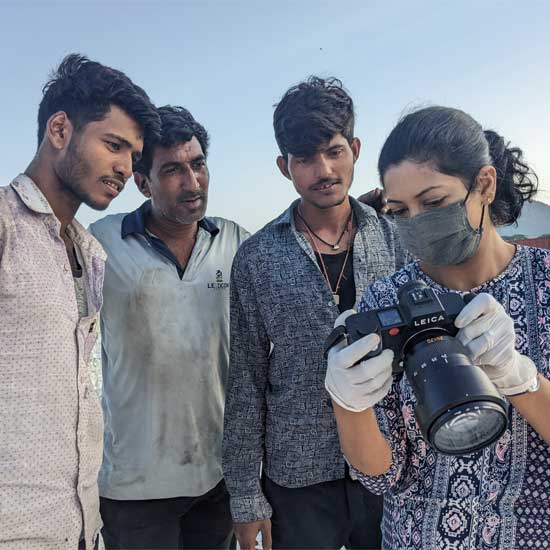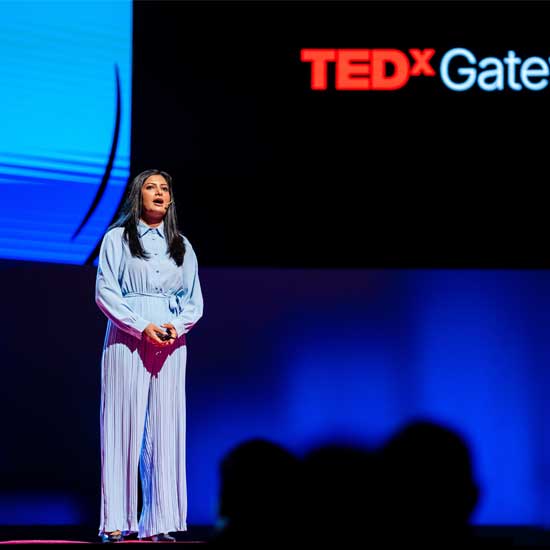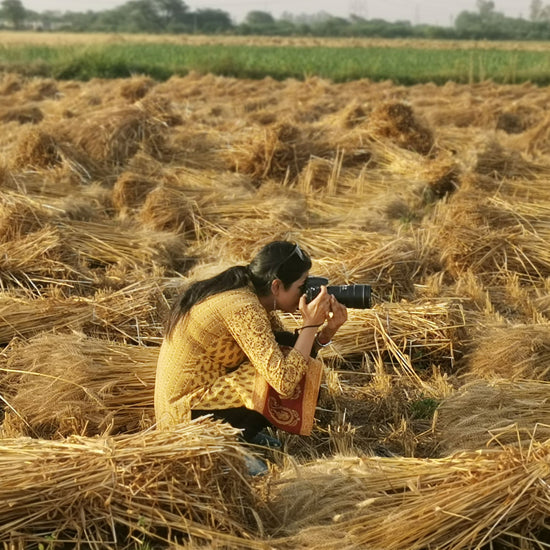A Journey Rooted in Purpose
Smita Sharma is a Delhi-based, award-winning photojournalist and visual storyteller whose work shines a spotlight on deeply rooted social and human rights issues across India and the Global South. With a background in documentary photography, she began her career focusing on critical themes like gender-based violence, trafficking, environmental degradation, and social injustice. Her storytelling is raw, honest, and deeply empathetic, amplifying voices that often go unheard. Smita’s journey has taken her from remote villages in India, Bangladesh and Kenya to the global stage, where her work has been featured in leading publications like National Geographic Magazine, TIME, and The Washington Post. Her practice is defined by a sharp editorial eye and a relentless commitment to truth.

Global Recognition and Advocacy
Smita’s work has received widespread global acclaim. She is a TED Fellow, IWMF Fellow and recipient of numerous international accolades including the Amnesty International Media Award, the Fetisov Journalism Award for Outstanding Investigative Reporting, and The Las Foto Award’s Advocacy Prize. Her story “Stolen Lives” for National Geographic documenting sex trafficking across India and Bangladesh has been particularly influential in policy and advocacy circles. Her images have been exhibited in countries such as the UK, Germany, Luxembourg, the UN Headquarters in New York amongst many others. She works with organisations such as Human Rights Watch, Action Aid UK amongst others and her work has been featured by TIME Magazine, Die Zeit, The New York Times, The Nature Conservancy and many more. Through every frame, Smita champions the power of journalism to inform, challenge, and transform.

Mentorship and Impactful Engagement
Alongside her fieldwork, Smita is a passionate educator and mentor. She conducts workshops and guest lectures around the world, including with the Indian Photo Festival, Foundry Photojournalism Workshop, NYU Gallatin School and VII Academy. Her teaching often revolves around the ethics of documentary photography, especially while working with survivors of trauma and vulnerable communities. As a speaker at international forums including TED, MIT Solve, National Geographic’s Storytellers Summit and various human rights platforms, she encourages photographers to tell stories that matter with sensitivity, patience, and integrity. Through these engagements, she has shaped a new generation of storytellers committed to change.

Digital Presence and Signature Projects
Smita’s body of work is easily accessible through her digital platforms, where she continues to engage her audience with updates, exhibitions, and behind-the-scenes insights. Her official website showcases signature projects like “Not My Shame”—a searing visual account of sexual violence survivors in India; “The Hargila Army”, which follows grassroots women protecting the endangered Greater Adjutant Stork in Assam; and “Stolen Futures”, a powerful documentation of child marriage in Nepal. She is an active member of The Photo Society, an international group of National Geographic contributors, and is featured by organisations like Photowings. She is an adviser to Hundred Heroines (UK) and The Photo Ethics Center (Ireland). Online, Smita remains both accessible and inspiring using her voice to amplify the stories that truly matter.
Leica India Scholar and Storyteller
Smita’s powerful visual language and ability to connect intimately with people have made her a natural fit as a Leica India Scholar. Her approach to photography focused on authenticity, respect, and deep narrative resonates strongly with Leica’s own philosophy. As a Leica India Scholar, she carries forward her mission of impactful storytelling through a lens that captures emotion, tension, and resilience with unmatched depth. This partnership is a testament to her contribution to documentary photography in India and her role in shaping a more conscious and responsible visual culture.


